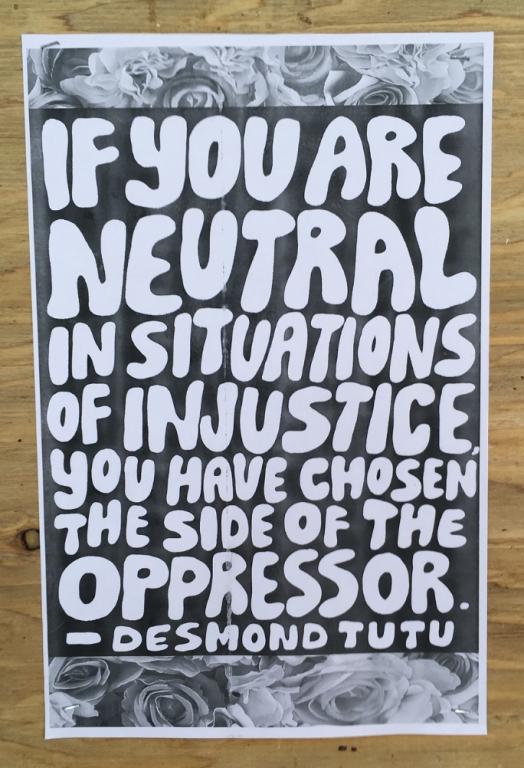
Throughout February, there was much talk about justice. Most will fall under the broad banner of “social justice.” Like years past, we will again witness the same conversations online.
And as before, most of the banter will prove unhelpful, perhaps even harmful inasmuch as it closes ears and solidifies opinions based on ignorance. So, in this post, I want to start a discussion by posing questions and making some distinctions that might (or might not) move the broader conversation forward.
Biblical vs. Secular Justice
A lot of substance is lost in terminology. For instance, debating “biblical justice” and “social justice” is unhelpful because justice is inherently social. What about efforts to define the word “justice”? Nope, those discussions often stall out because people can agree on core aspects of the definition but disagree about the application. We can all concur that justice concerns “what is right” but different parties dispute what counts as right.
Among Christians, I frequently hear people presume that the distinction is obvious between biblical and non-biblical justice. Just recently, a man claimed that biblical justice is about restitution or restoration whereas worldly justice (so he argued) is about retribution. From the context, I think he had in mind the problems surrounding cancel culture and doxing.
However, there are obvious problems with the man’s distinction. Readers of the Bible know quite well that God frequently imposes retribution upon his enemies. Among conservative evangelicals, an entire atonement theory is based on God’s retributive justice.
Not only that, but numerous biblical passages highlight the importance of making restitution (which I unpack a bit in The Cross in Context.) Another cultural observation throws a wrench into the argument. Christians can’t agree about the justice of reparations.
So, in a word, we can’t distinguish biblical and secular justice according to emphases on restitution and retribution. Both conceptions agree that justice somehow seeks the restoration of what’s right, but few agree on what specifically counts as right.
What Injustices Do We Tolerate?
I led a small group discussion on this topic recently and observed a common pattern. For any particular issue, people begin to take sides. And it’s usually not obvious which side is correct. Why? Because, in certain respects, both sides make valid arguments about how the world should be.

Yes, we should value black lives. And we should value white lives. Yes, it should not be that cops shoot unarmed people. At the same time, cops should be respected because they have tough jobs and risk their lives on our behalf.
We could recount similar lists for numerous other controversial topics. People are arguing about what concerns get priority and how to apply principles to specific circumstances.
As I listened to the group wrestle over what counts as justice, I noted something that might help up recover some part of the conversation. What separated one camp from another wasn’t the definition of or principles related to “justice.” Rather, I saw how much each side of different issues was willing to tolerate a certain degree of injustice.
Stop to consider any number of hot-button issues. Or think about various forms of hardship and suffering. Somehow, some measure of injustice will be at the root of every case. More often than we’d like to admit, a proposed solution will likely raise questions about whether justice is being served for this or that party.
In other words, all justice, for the time being, is proximate. What does that mean?
We’re constantly choosing between which injustices and how much injustice we’re willing to accept to improve the world. That’s the first issue we need to wrestle with in these conversations about justice.
What and Who Seeks Biblical Justice?
In conclusion, let’s return to the supposed contrast between biblical and secular justice. I have three brief comments.
1. Biblical justice hates all injustice. We should take seriously the fact that our proposed solutions will often leave certain injustices unaddressed.
2. It’s possible that secular, non-Christians will pursue biblical justice and not realize it. I say this because believers ought not to presume that they seek biblical justice simply because they are Christians. We are all affected by broader cultural values. What if we are the ones who have lost track of what’s ultimately right? It wouldn’t be the first time God’s people have done that.
3. Many of our arguments could be improved if we simply read and accepted all of what the Bible teaches about justice rather than using one text against another. Where might you be prone to do this?













